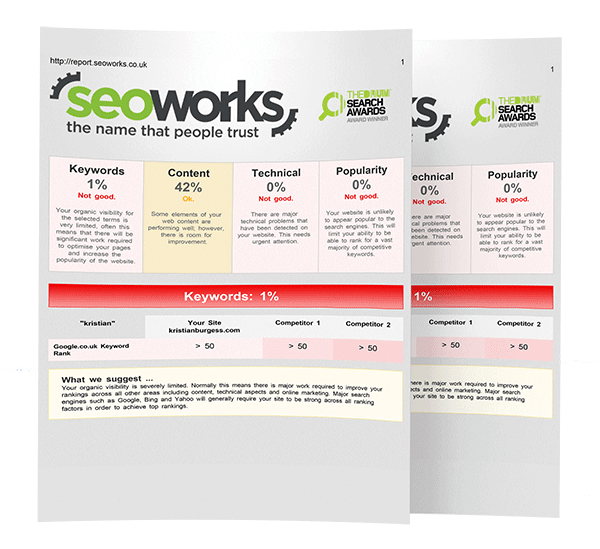SEO Practices to Avoid
Manipulative SEO practices can cost your website to lose rankings, traffic and business. Google has the power to penalise websites which it identifies as breaking their guidelines or employing unethical SEO practices.
Businesses large and small have been caught out after being sanctioned with Google penalties. Back in early 2014 the major travel website Expedia lost 25% of their search visibility, with major drops in ranking across their best performing keywords.
In a post in industry journal Search Engine Land, expert Barry Schwartz speculated that the most likely cause of the losses in rankings and traffic were from a paid link related penalty.
“From the looks of it, it does appear Expedia was participating in paid linking schemes that eventually caught up with them.”
This is just one example of a strong site being removed from the search results. It demonstrates just how seriously Google take search quality. In some cases, they have even prevented sites from ranking for their own brand name. Like in the case of the site “Rap Genius”. A popular lyrics site which was struck by a severe penalty after disguising an affiliate link scheme to manipulate their rankings. Their site was removed from Google completely for 10 days.
So what are some of the practices which can have a direct negative impact on your site?
Low Quality and Paid Links
Google measures the quality of the links pointing towards your site and considers this information when determining rankings.
Links are probably one of the most commonly manipulated metrics in Search, and one of the most heavily penalised.
Throughout the existence of the search engine, Google have constantly refined their algorithm and how they handle links. In 2012 Google launched “Penguin”, an algorithmic penalty which was designed to better catch sites which were engaged in link networks and the practice of buying links only with the intention of increasing search ranking.
By monitoring your link profile and only engaging in ethical link practices, you can avoid this type of penalisation.
Keyword Stuffing
When Google crawls your content, it measures the use of certain words and phrases to gauge what your site and content is about and where to place it in their index.
The inclusion of certain keywords and phrases in various parts of the content and on page elements, such as the header and title of a page, is a very important part of SEO.
However, when keywords are simply repeated throughout sections of text or “stuffed“, the content will stop making sense and users will dismiss it as complete nonsense. Search engines will also detect this and sanction your site for attempting to manipulate their algorithm.
Cloaking
Cloaking can refer to several different techniques that all share the same principle; serving two different versions of a page or site to users and search engines.
Sometimes this may be done by accident, with no manipulative intent. However when this practice is employed manipulatively just for the purpose of influencing the search engine results pages, Google has a collection of algorithms that will penalise these practices.
In the following video, Google’s former head of webspam Matt Cutts provides a complete look at how Google views cloaking and how they manage it.
In the video he says “All types of cloaking are against our quality guidelines, there is no such thing as white hat cloaking”.
Duplicate Content
A large percentage of the web is composed of duplicated content, and Google understands that. However if your site only contains content duplicated from another source, it will always be at a disadvantage in comparison to sites that create their own content.
Unique content gives you the opportunity to show that you have a competitive advantage over your competitor. It also allows you to differentiate your business or organisation from the rest. It also allows you to target a range of different search terms within your copy.
–
Poor quality SEO practices have existed since search engines started, but as Google continually improves their algorithm and the way in which they handle spam, they will continue to prevent these optimisation methods.
It’s in Google’s commercial interest for users to keep returning to their site to search for answers, products and services, which is why they take tackling poor quality SEO practices so seriously.
At SEO works, we work hard to ensure that our search strategies abide by Google’s webmaster guidelines and avoid poor quality techniques that could harm your site. We focus on building traffic towards your site in an ethical and sustainable way.
For more information on how we can improve the online visibility of your business through search visit our organic search engine optimisation page or contact us today.

